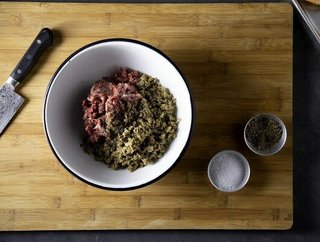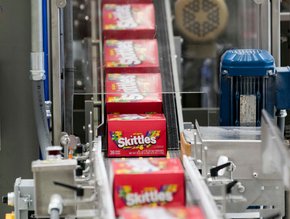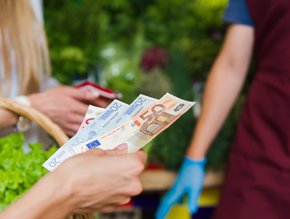Mush Foods slashes animal protein by 50% with mushrooms

FoodTech start-up Mush Foods is propelling the "meat-plus" movement to the mainstream of foodservice and food retail. A portfolio company of the Strauss Group Kitchen FoodTech Hub, Mush Foods has developed its 50CUT mycelium protein ingredient solution to slash the animal protein content in meat products by 50%.
"Our mushroom-derived products address the reality that there is a sizeable population of carnivores who are simply not willing to compromise on beef's rich taste, nutritional boost, and textural experience," explains Shalom Daniel, co-founder and CEO of Mush Foods. "50CUT is tailored specifically for hybrid meat products to satisfy flexitarians and carnivores with the unique sensation they crave, while easing the impact of global meat consumption."
Mush Foods' 50CUT product tailored specifically for blending with beef is composed of three edible Mushroom mycelium species. "By combining different types of mycelium we can create a unique ingredient which perfectly pairs with the particular taste, formability, texture, aroma, and even colour of beef," notes Dan Levanon, PhD, co-founder and Chief Scientific Officer of Mush Foods. "Once you add 50CUT to ground beef, it acts like a sponge and absorbs all the water, juiciness, fat, aromatic compounds, and assumes the visual appearance of the beef."
The technology behind 50CUT
The mycelium network is a thread-like, root-like underground system of fungi. It breaks down forest plant matter and nourishes the mushrooms growing above ground as well as the surrounding ecosystem. Mush Foods' pioneering proprietary technology for upcycling food side streams from local manufacturers was initially developed at the MIGAL Galilee Research Institute, Israel.
"We grow the mycelium above the ground in indoor farms using a highly efficient method," explains Idan Pereman, PhD, co-founder and Mycology Director for Mush Foods. "Our fermentation platform recreates the underground growth conditions, without light and uses minimal land, energy, and water. After harvesting, we produce the mycelium in a 100% natural process, with gentle preparing and shaping, reducing liquid to create a final product which contains no additional ingredients, binders, additives or flavorings."
50CUT serves flexitarians and carnivores
"There are several challenges that are holding back the wide adoption of foods which are 100% plant-based, keeping its market share at unsatisfying levels," says Amir Zaidman, Chief Business Officer of The Kitchen FoodTech Hub. "Mush Foods solution tackles these challenges and has the potential of widespread adoption. Having a million people cutting their meat consumption by 50% is a lot more likely to make an impact than one hundred thousand giving up on meat altogether. For this reason, we are sure Mush Foods will be a gamechanger."
Mush Foods says Mycelium is a whole protein, housing all the essential amino acids. It is rich in fiber and vitamins and contains no saturated fat, no cholesterol, and acts as a natural binder. Unlike other alternative proteins, mycelium possesses a natural umami flavor similar to meat, eliminating the need for masking agents or added flavours.
Circular economy
Mush Food's mycelium ingredient requires no agricultural land and uses minimal energy and water. Cultivation does not depend on season or climate. "Our mycelium ingredient is grown from food waste, making it highly sustainable and exerting a minimum carbon footprint," adds Daniel. "It also grows exceptionally fast: While it takes a year to grow a cow, and four months to grow soy, it takes only eight-ten days to grow mycelium, making it a highly scalable—and affordable—option."






